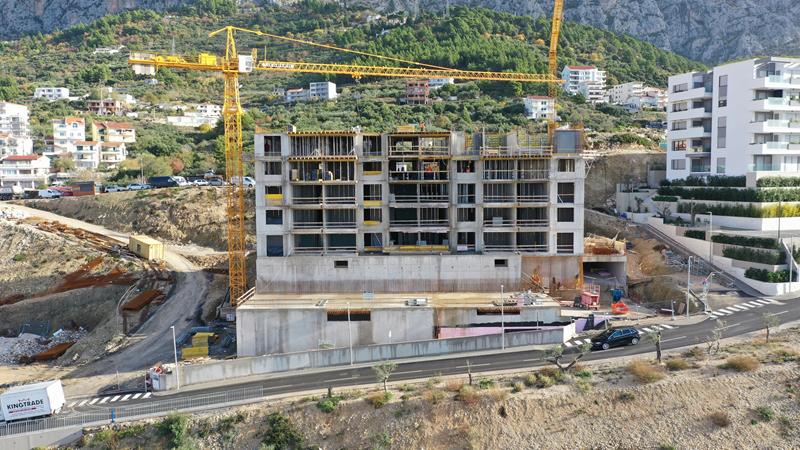Whether you're buying a newly built property or an older one, it's important to consider the pros and cons of both options. You need to weigh what matters most to you and which type of property checks the most boxes on your wish list.
Although new builds may seem to have a clear advantage, many buyers have found that this is often not the case.
Below is a brief overview of the advantages and disadvantages of newly built properties, which can serve as a checklist of things to consider and prepare for when purchasing new developments and projects.
Advantages and Disadvantages of New Builds
The good news is that more new homes are being built every year. This means more buyers are encountering brand-new properties when looking to buy or rent. However, it often happens that buyers quickly realize new builds are beyond their budget. So, let’s look at the pros and cons of buying a newly built property directly from a developer, and whether such a purchase is worth it.
Advantages of New Builds
Since we like to keep a positive outlook on life, let’s start with some obvious—and some less obvious—benefits of buying a newly built property:
Move-in Ready
A newly built property is a blank canvas, with fresh tiles, paint, kitchens, and bathrooms. This means there’s very little, if anything, you need to do to make the place livable. You can simply unpack your things and start enjoying your new home.
Advantage with Banks
For many first-time buyers, purchasing a new build is the only way to break into a highly competitive property market. One of the main reasons is that banks tend to favor new builds when issuing loans. They often receive higher valuations, making them less risky from a lender’s perspective in case of default.
Sales Incentives
Developers often throw in “special offers” to encourage faster sales and recover invested capital. These incentives can include covering taxes or offering allowances for interior finishes.
Modern Living
High-spec new builds come with the latest technology. Many feature smart home systems and open-plan layouts, which are currently highly desirable. Some even offer amenities like shared spaces or swimming pools.
Involvement in Design
If you’re buying off-plan, there’s a real possibility you’ll have a say in the design. The developer may allow you to choose materials or even tweak the layout.
Lower Utility Bills and Costs
New builds must comply with the latest building regulations, meaning they’re much more energy-efficient than older properties. Energy certificates show that over 80% of new homes are rated A or B. Compared to just 2.2% of older properties, it’s clear that energy efficiency is one of the biggest advantages of new builds. Better energy ratings can also lead to various incentives and access to lower-interest loans.
"Clean" Ownership Documents
As the first owner, you won’t have to deal with complicated ownership histories or problematic paperwork. Documentation and legalization issues are some of the biggest stress factors when buying property.
Warranties
All new builds come with a warranty, which you wouldn’t get with an older property. Still, keep in mind that the property warranty might not cover everything you would expect.
Disadvantages of New Builds
As mentioned earlier, every coin has two sides, and this is no exception. Here are some drawbacks of buying a new build that all property buyers should keep in mind:
Limited Space
Developers aim to maximize their investment, so they often try to pack a lot into limited space. This means new builds are often less spacious than older homes. From experience, this especially affects storage and room sizes. Make sure the size suits you and that your car fits in the garage.
Depreciation
Many of the benefits of a new build disappear the moment you buy it and it’s no longer “brand new.” A one-year-old property may lose value simply because potential buyers might prefer newly launched developments. Our advice: if you're buying a new build, plan to live in it for a longer period.
Hidden Quality Issues
New builds often get bad press, and stories about poor workmanship regularly make headlines. Even in the best new properties, expect minor issues like doors catching on carpets or loose tiles. Whether it's a significant structural problem or a series of small annoyances, be prepared to make a list of potential issues as soon as you start inspecting your new home. That way, you can have many of them resolved—free of charge. A thorough inspection and checklist are essential early on.
Delays
Construction doesn’t always go according to plan, and it’s not uncommon for the move-in date to be pushed back. This may be just a minor inconvenience, but if delays drag on, they can lead to stress and additional costs. We frequently hear from people dealing with unexpected rental and storage expenses because they had to move into temporary accommodation while waiting for their new build to be completed. No one wants to be in a situation where they’ve committed to buying a property but are forced to find alternative housing due to delays beyond their control.



